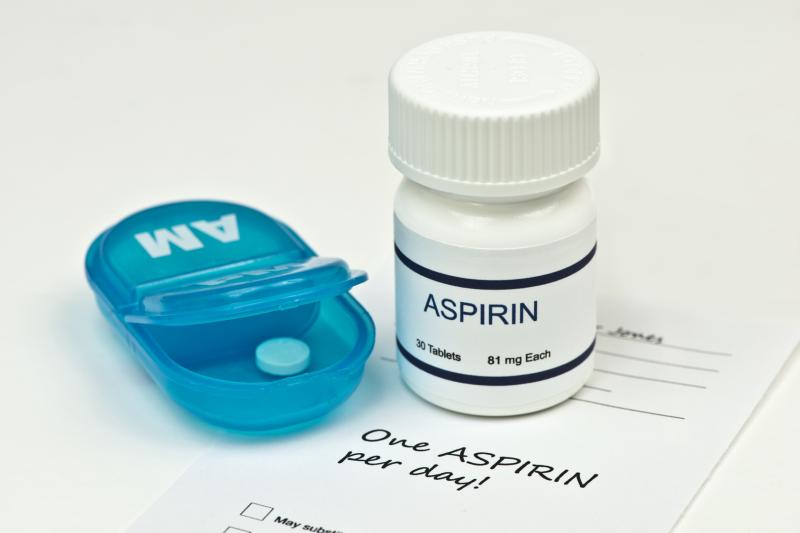 For nearly 100 years, aspirin has been a common drug used for pain relief and fever treatment.
For nearly 100 years, aspirin has been a common drug used for pain relief and fever treatment.Treatment with low-dose aspirin at <11 weeks’ gestation in women with recurrent miscarriage may reduce the risk of preterm delivery but not pre-eclampsia, gestational hypertension, any hypertensive disorder of pregnancy and foetal growth restriction, according to the results of a systematic review and meta-analysis.
The investigators searched the databases of Medline via PubMed, Embase, Cochrane, ClinicalTrials.gov and the World Health Organization International Clinical Trials Registry Platform from 1985 to November 2018 for randomized controlled trials (RCTs) assessing the effect of aspirin administered at <11 weeks’ gestation in preventing pre-eclampsia and/or hypertensive disorders in pregnancy or improving pregnancy outcomes in women with recurrent miscarriage as compared with placebo or no treatment.
Eight RCTs with a combined total of 1,426 participants met the eligibility criteria. Administration of low-dose aspirin at <11 weeks’ gestation correlated with a nonsignificant reduction in the risk of pre-eclampsia (relative risk [RR], 0.52, 95 percent confidence interval [CI], 0.23–1.17; p=0.115), gestational hypertension (RR, 0.49, 95 percent CI, 0.20–1.21; p=0.121) and any hypertensive disorder of pregnancy (RR, 0.59, 95 percent CI, 0.33–1.04; p=0.067).
However, early administration of low-dose aspirin resulted in a reduced risk of preterm delivery (RR, 0.52, 95 percent CI, 0.27–0.97; p=0.04) but showed no effect on the risk of foetal growth restriction (RR, 1.10, 95 percent CI, 0.58–2.07; p=0.775). Sensitivity analysis showed similar findings, except for preterm delivery and any hypertensive disorder of pregnancy, thus confirming the strength of the analysis.
Larger randomized controlled trials are warranted to validate these findings, the investigators said.